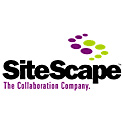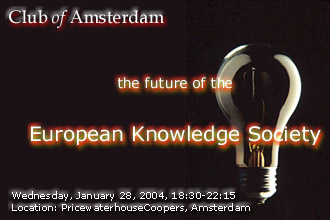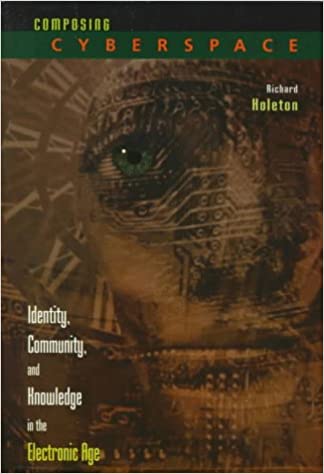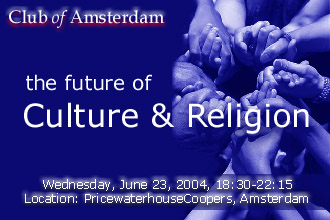
Content
Q&A with René Gude

René Gude, Managing Director, The International School for Philosophy
Club of Amsterdam: The theory of knowledge in the field of philosophy may teach us important lessons for the future of the European Knowledge Society. What can we learn?
René Gude: It’s ‘nice to know’ what knowledge is when you enter a discussion on the knowledge society. It is not ‘need to know’ because the discussion flourishes without – and maybe because – anybody raising the question. If you do raise the question, you are automatically practicing ‘theory of knowledge’. Knowledge is reusable and surpassable experience. Since man hasn’t changed biologically in the past 2500 years, we can safely put that the process of acquiring knowledge hasn’t changed either. That means that the way in which the Greek acquired and surpassed knowledge about the private and public life in a small prosperous state like Athens, is exactly the same as that of the Romans orienting themselves in times of globalised empires and that of the French addressing exactly the same issues in their 18th century national state. That implies that the theories of knowledge of respectively Aristotle, Seneca and Montesquieu are as actual as they were then. Due to a mistaken concept of progress in all fields, we always condemn ourselves to the permanent fallback by forgetting. Philosophy shows what remains the same in all change.
What contribution can philosophy make in regards to the Knowledge Society?
René Gude: Apart from helping to determine what knowledge actually is, philosophy has interesting things to say about the ways to communicate knowledge, how to develop a certain habit in not mistaken all the time and furthermore some interesting viewpoints on what to do with is. The three fields of knowledge are the theoretical, the logical and the practical. In fact philosophy is the ongoing integrity check on the unity of these three discernable area’s. The sciences and humanities are by nature looking for the new, fresh and yet unknown. Philosophy comes in afterwards and aims at integrating the new pieces of information to a coherent whole. Not very sexy. ‘Everybody wants to build, nobody wants to do maintenance’ as Kurt Vonnegut rightly put it.
How does the notion of creating a Knowledge Society connect to ‘quality of life?
René Gude: In science, both natural and social, we tend to restrict our attention to the ‘quantity of life’ by reducing values to countable entities, for instance matter, time, money and the behavior of larger groups of people. There is no harm in that, because it makes these sciences relatively easy. But in the end all knowledge is meant to contribute to improvement of our private lives, our life at work and the life as a member of society. It is nonsense that only quantitative knowledge is reliable. There is lots of reusable experiences (=knowledge) of a qualitative nature. The fact that these are harder to preserve and acquire can’t be a reason for disregarding them in a knowledge society that deserves that honorary title.
Q&A with Thomas Thijssen

Thomas Thijssen,
Chief Learning Officer, Club of Amsterdam
Club of Amsterdam: Why are you so convinced that the European Knowledge Society should aim to be a Full Engagement Society? And what do mean by full engagement?
Thomas Thijssen: The functioning of any society is based on the contribution to that society by individuals and organisation in terms of creating wealth for all. In a Knowledge Society it will be key to engage all human capital, social capital and intellectual capital in value creation. For instance in the Netherlands the ratio between workers and non-workers is 10:8. Such ratios give the impression that 10 workers are supporting 8 non-workers. But the question is if this is an accurate representation of the contribution of people in society. My answers is no. All people contribute to society whether they engage in paid for work or not. An example: the value of non paid voluntary home care (mutual aid to family members and others) was valued by the Central Planning Bureau in March 2003 to be higher than paid for home care. So non-workers and workers perform valuable activities to society that are not always recognized, simply because they are kept out of statistics. In reality these activities do take place and enhance the quality of life. This is the main reason why I believe we should strive for a full engagement society, where everyone is included and challenged to engage in contributing to society. Naturally work is a valuable activity, but self-aid (taking care of one’s own needs) and mutual aid (assisting each other) are just as valuable to our society. We should look for new definitions to describe and value other activities than paid-for-work in order to give individuals and organisations of voluntary workers the recognition they deserve for their contribution. Without their contribution society would come to an immediate stand still, we lack the financial resources to pay for all activities currently performed.
How does that relate to the European Knowledge Society?
Thomas Thijssen: When the European Knowledge Society is discussed, knowledge circulation through research, education, development and absorption in organisations is often high-lighted. It provides a possible answer on how ‘top knowledge’ can be applied to create value. It is a capitalist view with a focus on ‘top knowledge’ work. In a full engagement society knowledge is viewed as personal talent and competencies including knowledge on all levels of activity. Such as raising children well, personal hygiene, the art of preparing a nutritional meal, engaging in activities to keep body and mind in shape, caring for others in an effective way, important knowledge for repairing and replacing parts on airplanes and other machinery. For a society to function well there is place for talent, competencies including knowledge on all levels varying from very applied and practical to fundamental and abstract in building new theories.
This view combines a capitalist view with a humanistic view and I would call it social-capitalism. Knowledge is applied and shared for the wealth of many in stead of a few bright people. The advantage is that every one is included and the chance on social unrest such as strikes and uproar as well as aggression and war will be less likely.
How can individuals shape their future in a ‘Full Engagement’ Society and make a contribution?
Thomas Thijssen: When individuals consider themselves and their contribution to society, they can ask themselves
- Who am I, what are my unique talents and competencies, what do I want out of life?
- What value will I create for myself and for others? In short, what is my personal ambition.
- Link to other people and get truly engaged in what you want
- Build your talent and competencies through activities and through learning
- Share and keep on looking for fresh challenges to fit your ambition and your social environment
- Give your best to those who need it most, it can be very rewarding
- Shape your own life to be as valuable as possible according to your talent and ambition.
- Join the Club of Amsterdam in Shaping Your Future.
About the future of the Knowledge Society

“The Value of Knowledge doesn’t exist!”
by Paul Louis Iske & Thijs Boekhoff
In the so-called knowledge economy, intellectual assets have become the most important factor in determining the value of an organisation. Many activities nowadays focus on discovering the Holy Grail of knowledge management: the value of knowledge and the added value of knowledge management. Prominent work in this area includes that done by Sveiby and Edvinsson. However, so far it has been difficult to develop quantitative measures that relate knowledge to the economic value of an organisation.

The IPTS Report
by the Institute for Prospective Technological Studies
The acceding and candidate countries, in particular those in Central and Eastern Europe, have during the last decade undergone a set of three radical transformations: the shift to a market economy, integration into the European Union – the so-called Enlargement Process – and finally, a move towards the Information Society, today enshrined in the different initiatives of the eEurope Action Plans.
These three transformations aim, at various levels, at the emergence of an enlarged European knowledge society as referred to in the March 2000 declaration of the Lisbon Council. In doing so, they challenge the economy, institutional and political structures, constitutional and legal frameworks, and working conditions in the countries in question.
News about the Future
Artificial Muscles
University of California at Berkeley researchers have taken a significant step in the development of synthetic muscles.
Scientists at the Richmond Field Station, an annex to UC Berkeley’s Cell and Tissue Engineering Laboratory, have found that micropatterned matrix proteins and topography can be used to control smooth muscle cell morphology.
Cell morphology is the branch of biology that deals with the form and structure of cells.
“As we learn more about creating synthetic muscle, the long-term application is to develop muscle using autologous human cells so that the muscle can be transplanted back into humans without fear of rejection,” UC Berkeley bioengineering graduate student Ngan Huang, said.
Endless Space Generated by sections”-PAVilion
CAAM-pavilion (Computer Aided Architectural Manufacturing).
The nds pavilion consists of many different, independently designed sections. These
sections, based on a basic system, can be configurated according to their specific use.
In order to avoid the sections beeing unrelated to each other, a computer program
generates adapting slices. By aligning the user defined sections and adapting sections in a linear arrangement a pavilion of continuous linear space is created.
Nine postgraduatestudents of the ETH Zürich are producing their own customized
sections. These sections will be combined with adapting sections to create a pavilion. Each section will be 60cm deep, a maximum of 3m high and 3m wide.
Wednesday, January, 2004
The European Design Centre
Projects by the European Design Centre:
DeGap
DeGap is a research project supported by the European Commission. The main goal is to find and determine methods of closing the gap between designers, engineers and marketers. It is cooperating with a number of organizations, institutes and design studios from all over Europe.
iBuild [Dutch]
iBuild is software for Interior Design, architecture, construction and urban planning. It is a tool to assemble predefined elements and directly view the three dimensional appearance. It is easy to change colors / materials. When you finalize the model, it can automatically generate the list of items, delivery dates and costs.
Emopay [Dutch]
European Mobility and Payment Systems
Emopay is a payment system based on GSM and GPRS technology. The SIM card is used as an identification, user can by calling or sanding an sms execute transactions. At this stage Emopay offers payment for gas at the tank stations and usage of parking facilities – in garages or as street parking. Emopay is a fast and secure method of payment, which does not require any complex and expensive hardware.
Design Management
In 2001 EDC and it’s partners organized the first edition of European Design Management Award. The case studies from six European countries have been collected and analized, and companies which manifested the bast practice of design management were awarded. EDMA was part of activities of MadeIT, innovation project founded by the European Commission, managed by EDC.
Klas van de Toekomst
This is a project running in cooperation with the Municipality of Eindhoven. The main goal is to promote technology and technology related professions among the young and at the same time let children create their own vision of the future in the field of education.
Recommended Book
Composing Cyberspace: Identity, Community, and Knowledge in the Electronic Age
by Richard Holeton
This innovative reader addresses the social, cultural, political, and educational implications of today’s burgeoning information and communication technologies in substantial critical depth. Using three broad human themes – Constructing Identity, Building Community, and Seeking Knowledge – this brief freshman reader engages students in exciting rhetorical issues, including “Gender Online,” “The Global Village,” and “Information Overload and New Media.” In each case, hopeful and optimistic views are balanced with incisive technology criticism, helping to make cutting-edge social issues intellectually coherent and accessible to your students.
Sponsor & Supporters of the Club of Amsterdam event about ‘the future of the European Knowledge Society’ on Wednesday, January 28, 2004 are:
Sponsor:

Supporters



The Club of Amsterdam Round Table: Mark Bolick

Mark Bolick
The future of personal computing
On July 22, 1969, two humans rode in a spacecraft to the surface of the moon. The computer that ensured that they didn’t end up crashing had a total of 36 KB of ROM, ran at 2 MHz and weighed 32 kilograms – at a cost of millions of dollars. By contrast, the average personal computer today easily exceeds 10 GB of ROM, runs at over 2 GHz and weighs only a fraction of the Apollo 11 guidance computer – a bargain at just a few hundred dollars. While this is a good example of Moore’s Law at work, it also illustrates just how cheap computing systems have become.
There’s something wrong with this picture though. Why do we need so much computing punch when most people use only a few percent of their CPU power to edit text documents, build spreadsheets, read email and browse the web? After all, we managed to land on the moon and return safely with the memory equivalent of what it takes to store this document in Microsoft Word. Is there not a way that some of this computing power can be distributed to help bridge the ‘digital divide’ and bring the ICT revolution to more of the world’s population?
The International Telecommunication Union (part of the United Nations) recently held the World Summit on the Information Society (WSIS) to start organizing governments, businesses, NGOs and the media to try to help bridge the digital divide. If the WSIS efforts are like most such ventures, the outcome will be mostly talk and end up highly politicized. But something has to be done to bring the benefits of the knowledge society to the rest of the world.
I believe that things are starting to change for the better. Not only is the price of personal computer hardware dropping significantly, it is now possible to avoid reinforcing Microsoft’s monopoly power by opting for Linux based software for a fraction of the cost. There is a great deal of momentum building up behind these open source options. Governments in over 40 countries are mandating the use of open source software. With government IT spending in the billions, this is being driven as much by trade balance and national security concerns as through motivations of monopoly busting.
So, hardware costs are coming down and it is reasonable to assume that cheap, open source software will gain increasing ground on proprietary versions. In time this should drive the total cost of a basic personal computer near to the $100 level. That’s great news for the developed world, but still leaves the ‘per seat’ cost of access way out of reach of the developing world. And this is without considering Internet access costs and the complexity of basic personal computer administration. To reach the final 25% of the world’s population in a reasonable time a disruptive change is required.
It has been 30 years now since the first human stepped on the surface of the moon. We have the technical and industrial capability to bring the tools of the information age to every human on earth. But as participants of the WSIS must surely feel, there is a lot standing in the way of reaching that goal. I think the open source movement is the beginning of a disruptive change. All that is needed are similar disruptive changes on the hardware, networking, system administration, training and Internet access sides. That is a challenge for concerned people and organizations, but it’s also a great opportunity for entrepreneurs. I’m an optimist. I expect someone to seize the opportunity and help spread the knowledge society to all corners of the earth. After all, it shouldn’t be as hard or as expensive as landing on the moon!
Club of Amsterdam Events 2003/2004
| October 28, 2003 | the future of Food & Biotech |
| November 27, 2003 | the future of the Media & Entertainment Industry |
| January 28, 2004 | the future of the European Knowledge Society |
| February 18, 2004 | the future of Education & Learning |
| March 31, 2004 | the future of Energy – the Hydrogen Economy? |
| April 28, 2004 | the future of Healthcare & Technology |
| May 19, 2004 | the future of Architecture |
| June 23, 2004 | the future of Culture & Religion |









Customer Reviews
Thanks for submitting your comment!